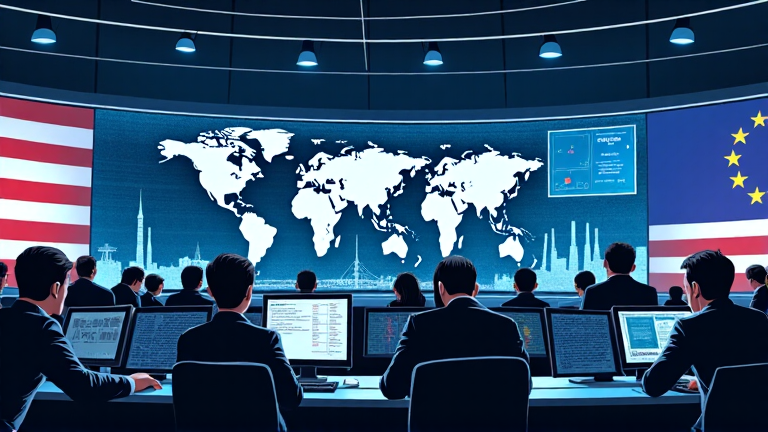
US at the Vanguard of AI Innovation
During a pivotal AI summit in Paris on February 11, 2025, U.S. Vice President JD Vance reinforced America's leading position in artificial intelligence. Speaking to an audience of world leaders, Vance stressed that the United States would remain the powerhouse of AI, backed by policies set by the Trump administration, which pledged that the most advanced AI systems would be developed with American-designed chips and manufacturing capabilities.
A Call for Balanced Global Regulation
Vance's remarks reflected a determined vision to keep the U.S. at the forefront while engaging internationally. He argued that collaborative progress was essential, yet cautioned against regulatory measures that could suffocate innovation. Key points from his address include:
- Prioritizing Innovation: The U.S. aims to build robust AI systems without overly restrictive safety mandates.
- International Partnerships: The vice president underscored the importance of trust, urging European partners to adopt regulations that foster rather than hinder technological growth.
- Energy and Infrastructure: Commenting on the push for sustainable energy, Vance noted that AI's progress depends on reliable power and manufacturing infrastructure.
Critique of Current Regulatory Frameworks
The vice president did not shy away from critiquing existing regulatory norms. He specifically targeted Europe's reliance on the General Data Protection Regulation and the Digital Services Act, suggesting that these rules might impede the momentum of AI innovation. According to Vance:
- U.S. technology companies should not be hampered by foreign policies tightening controls on international operations.
- The emphasis should be on building capacity—from stable power supplies to advanced chip manufacturing—rather than excessive safety debates.
Divergent Views at the Summit
While many of the summit's attendees signed a joint declaration aimed at developing data governance frameworks that balance innovation with privacy, the U.S. and U.K. chose not to endorse the statement. Nevertheless, there was a consensus among several world leaders that reducing regulatory burdens is crucial for technological advancement:
- French Perspective: President Emmanuel Macron, hosting the summit, acknowledged that although safety is vital, Europe must enable its AI sector to innovate as dynamically as global competitors.
- European Defense: European Commission President Ursula von der Leyen defended the bloc’s comprehensive privacy legislation, emphasizing the need for rule simplification and cutting unnecessary red tape.
Veiled Warnings on Authoritarian Collaborations
In a subtle but pointed critique, Vance referenced the dangers of aligning with foreign adversaries. Without naming China directly, he warned that collaboration with authoritarian regimes could compromise national security by sharing sensitive AI-related technologies. Vance's remarks highlighted concerns that such partnerships might enable:
- The manipulation of historical records through weaponized AI software.
- The infringement on privacy and free speech via enhanced military surveillance capabilities.
This perspective comes at a time when the U.S. has been actively restricting China's access to cutting-edge AI technologies, following reports of security lapses in Chinese AI applications like DeepSeek.
Global Research and Future Implications
The discussion on regulation extends into the realm of academia and research. Several U.S.-based AI researchers voiced worries that insufficient safety measures and a lack of uniform international standards could hinder global collaboration and data sharing. Experts like Susan Ariel Aaronson from George Washington University and Mona Sloane of the University of Virginia stressed:
- The importance of global data aggregation for accurate AI development.
- The risk that isolation from international research networks may lead to serious setbacks in both AI innovation and its safeguards.
Concluding Vision for AI's Future
As global leaders continue to debate the ideal balance between regulation and innovation, the U.S. stands firm in its commitment to not only lead in technological achievements but also to shape a regulatory environment that supports sustainable growth. The ongoing discourse at the summit underscores the delicate equilibrium between ensuring security and fostering an ecosystem where AI can thrive.
The future of AI will be determined by policies that refrain from stifling new technology at its inception, a principle that the U.S. government appears intent on defending as it navigates an increasingly interconnected and competitive global landscape.
Note: This publication was rewritten using AI. The content was based on the original source linked above.